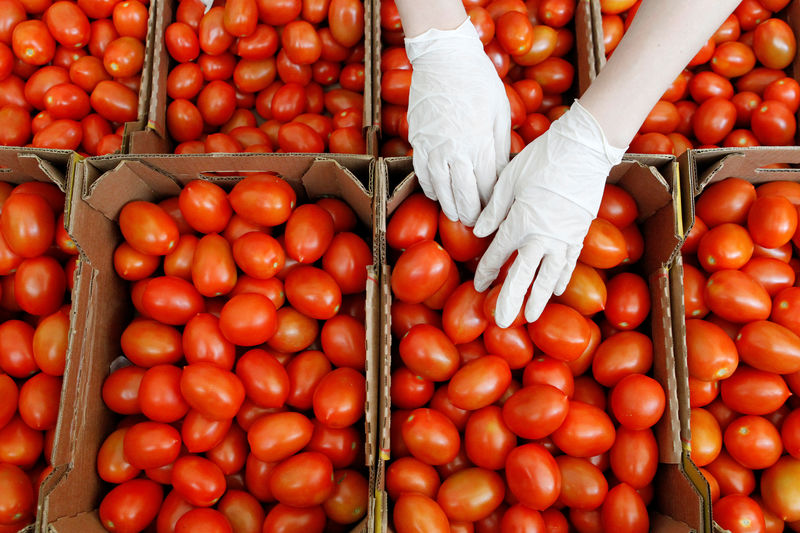An Ogun State-based female farmer, Ruth Bose Suberu, has identified poor electricity and lack of means of storage as some of the challenges confronting rural farmers cultivating tomatoes.
Suberu, a graduate of Lagos State University, told Daily Trust that tomatoes, being perishable goods, require government’s support in storage and buyback plans to encourage rural farmers.
- How we survived 100 days in captivity – Released Kaduna train victims
- Buhari participates in trial census in Katsina
She majored in vegetable, pepper, tomato and cucumber farming.
The female farmer described tomato farming as lucrative “because every household needs it.”
She said, “Tomato farming is lucrative, especially in the dry season. Almost all households consume tomatoes on a daily basis. With good agronomy practices, farmers will not run at a loss. The South-West is the major consumer of tomatoes, it’s a big market for tomatoes.”
Continuing, Suberu said “Tomatoes are perishable goods as such farmers sell them fresh in the market to retailers or consumers. Preservation can be done on a commercial level in cold storage but electricity has been a challenge in Nigeria as such farmers still suffer major losses when there is a glut.
“Government should assist rural farmers with improved seeds, inputs and means of storage. Government should have a buyback plan for farmers to encourage production.”
She also shared tips on tomato farming.
She said “Requirements for tomato farming include: passion, land, water, irrigation system, seed and inputs.
“You have to choose fertile land for tomato farming. After acquiring land, the next thing is to clear the land and clean the land.
“Till the soil/land, apply organic manure and make a bed of desired size (0.5/1 meter wide) and desired length. After making the beds the irrigation should be installed.
“Build a net house for seed nursery or simply. Do the traditional method and shade with insect-proof nets to keep insects away from seedlings. Nurse the tomato seeds in a seed/nursery tray or raise a bed and nurse the seeds.
“In 4-5 days, the seeds will sprout. Transplantation starts from 14 days, depending on the rate of growth, but at most 21 days.
“While waiting for the seedlings to mature for transplanting, staking materials should be ready, install the bamboo/stick.
“Apply desired fertiliser (organic or inorganic) for two weeks; apply insecticides and fungicides weekly to keep insects and diseases away. Apply nutrients weekly for healthy growth and production.”

 Join Daily Trust WhatsApp Community For Quick Access To News and Happenings Around You.
Join Daily Trust WhatsApp Community For Quick Access To News and Happenings Around You.


